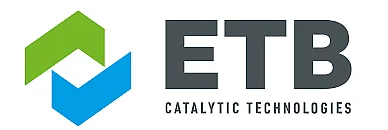
Green chemistry Accelerator
Accelerate to a Green Future
Starting and scaling a green chemistry business, particularly one driving the transition to a circular economy, presents unique challenges. Securing customer commitment and funding for pilot and demo plants is particularly tough, delaying the demonstration of a company’s market value.
The Green Chemistry Accelerator supports these businesses with a tailored program, aimed at overcoming company-specific barriers to increase market adoption and attract the right investors. Interested? Register by November 1 via the Registration Form on the right.
Why join as a green chemistry entrepreneur?
Participation in the program allows you to:
- Gain insight into the green chemistry ecosystem (market, investors)
- Challenge and refine your growth strategy
- Identify development goals
- Access industry networks and expertise
- Boost market adoption of your technology
- Attract the right investors
What does the program offer?
The program includes:
A deep dive to identify core development goals
A tailored 200-day plan to achieve key objectives
Bi-weekly support for executing your custom plan
Expert consultations on specific development goals
Peer group sessions
Networking with key investors
Who is the program for?
The program is designed for entrepreneurs who:
- Aim to contribute to a circular economy by bringing green chemistry innovations (recycling, biobased, CCU) to market
- Aspire to grow a business with €100M+ potential (revenue, CAPEX, or value)
- Want to work with trainers and experts for progress
- Are developing innovations beyond TRL 5 (preferably TRL 6-7)
- Have formal backing from two or more customers and feedstock suppliers
- Need financing between pre-seed and Series A
- Have a runway of at least 200-300 days
- Are in contact with a regional development agency or Invest-NL
Proven Success
To date, 10 participants have completed the program successfully over two rounds, making significant strides in scaling up. Below, you’ll find testimonials from these participants and a video with more insights.

DOPS

Nature's Principles

Recell

Resolved Technologies

Senbis

ETB Global

Paques Biomaterials

Relement

Susphos

Torwash
This program has been developed in collaboration with
Interested?
Let us know by November 1st at the latest. For more information and the next steps, please contact Angelique Erkenbosch:











